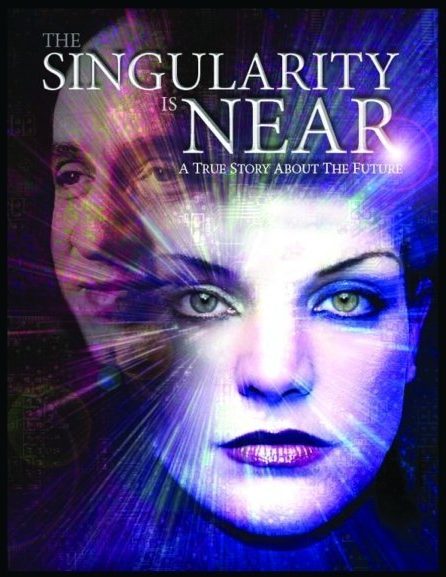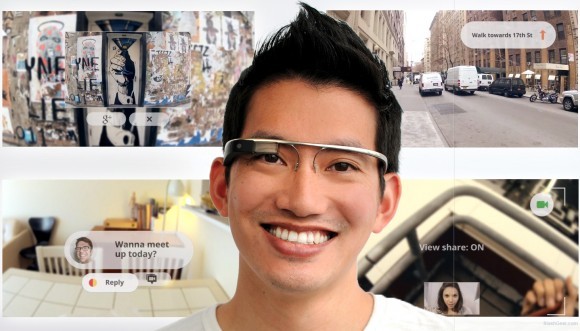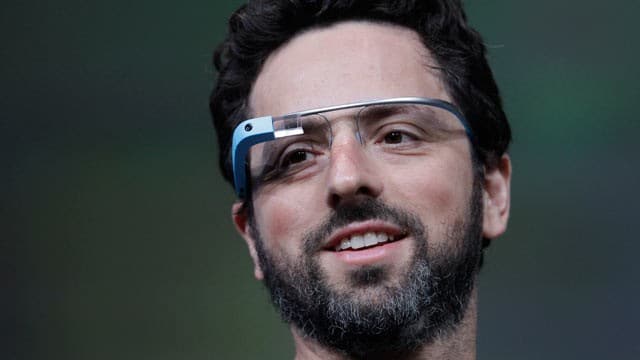The age of singularity is upon us. What was once considered eerie science fiction is now seeping into societal perception as augmented reality through Google Glass.
Inventor Ray Kurzweil has famously predicted that humans will merge with machines around the year 2045. However, this futurist may be closer than he thinks. Now the Director of Engineering for Google, Kurzweil is rapidly working towards an earlier arrival date with Google’s latest product…Glass. Holographic assistance may soon be attached to every person’s face, as Google invites the world to evolve with them in this new era of technology.

Taking photos, recording videos, real-time streaming, and instantly uploading content to social platforms has never been so accessible. Information at our fingertips will soon become a fleeting sign of the past as wearable smart devices take over hand-held phones and tablets. Technology is infiltrating our lives in the most ubiquitous of ways, and with Google Glass soon to be on the market, information will only be a thought away.
In his 2005 novel, Singularity Is Near, Kurzweil says singularity is a time when intelligence will become “nonbiological and trillions of times more powerful than it is today” which will spark a new civilization and “enable us to transcend biological limitations and amplify our creativity.” Eight years after publishing that statement and Google is presenting consumers with an opportunity to make the transition.
It Pays to Be a Google Glass Member
Members of the elite Glass Explorer Program received their $1,500 pre-ordered pair earlier this year (2013) with an invitation to a special pick-up experience, but in a surprise move, Google expanded their beta-Glass series to a few thousand testers via Twitter.
Tweeting #IfIHadGlass with a 50-character response answering “What would you do if you had Glass?”, tech enthusiasts were given until February 27, 2013 to vie for a set. Designed to capture and share individual perspectives of the world, the camera lens, interface, microphone, and speaker fit directly over the wearer’s right eye. With wifi and Bluetooth connecting this product online and with smartphones, data storage and social sharing is enabled.
Glass currently allows video and voice recording, photography, live streaming, POV time-lapses, and video chats which can be used and shared at all times of the day.

Once turned on, the wearer sees a transparent projected image of the time in the upper right corner of their scope of vision. The device turns on by touching the side of the headband or tilting your head up. Glass primarily functions off of voice command and only works by saying the magic words “ok glass” before all phrased actions, such as “ok Glass, take a picture” or “ok Glass, call home.”
With their public release date set to late 2013, Google first starting designing Glass in 2011. VP of Engineering, Scott Huffman told NBC News, “One thing that we’re really excited about and working hard on is transforming the way that people interact with Google…from the stilted one-keyword-at-a-time conversation, to more of a natural conversation…like a human assistant.”
Forget Apple’s Siri, Google is now becoming Pat from Disney’s Smart House. While Google Glass only allows video recording, photography, and live streams…for now, Huffman says they plan on integrating all Google products into the new smart device. He also alludes to the fact that the machine will know a client’s lifestyle and habits so well, it will start anticipating needs and making recommendations. It will become so advanced that it will provide answers to questions only thought and not asked.
All new technology requires development
Although still in its development-phase, this product hopes to alleviate peripheral issues while recording fleeting moments. Google’s answer to bringing faces up out of their phones and tablets, Glass proposes to help people be more present in their daily environments. But imagine standing in line and instead of seeing everyone’s heads down in their phones, they are all dismally looking into the abyss while chanting “ok Glass, do this…”
The mere logic of having to use voice command to search for something or navigate an action doesn’t quite make sense with public accord or common courtesy. For those who feel awkward speaking about their personal lives in a public setting, this product may only be reserved for special events and not necessarily daily use.
However, Google still needs to work out the kinks as privacy, usability, and price are currently presenting issues for the market. The biggest concern is privacy. Knowing the point at which the product starts to infringe on the rights of Glass owners will be Google’s main obstacle.
In addition to the user’s privacy, the public is also at the mercy of being recorded every time an interaction occurs with someone wearing Glass. What is appropriate to film is now being questioned as compromising moments may be subliminally recorded. Google’s ability to monitor all user activity may also weigh heavy on the minds of those deciding to purchase the product.

Instead of being able to ignore incoming messages, users will be bombarded with projected alerts while conducting face-to-face interactions. And due to the holographic projected images, depth of field misperceptions may pose issues for future generations. According to critics, the eye piece isn’t all that fashionable either.
The product has been compared to a creepy cyborg-like accessory which Mark Zuckerberg doesn’t find all that attractive. Forbes writer Ryan Mac, said he overheard Zuckerberg say to Google co-founder Sergey Brin that he wouldn’t feel comfortable wearing Glass in public or while speaking to someone in person.

Glass could even be in the right place at the right time to provide video evidence of crimes, alibis, or supporting documentation, similar to 1984’s Big Brother watch. With features that border invasion of privacy, Glass may be crossing the line into Minority Report’s “preventive crime” theory. By virtue of being closely monitored by the parent company, who’s to say that when something is thought…just thought and not acted upon…it could be taken as sign of potential harm and prevented by police intervention?
Have we become so reliant on Google that we are allowing it to literally become apart of us? At what point do we recognize the dangers of human and technological integrations? As consumers, we hold the power to what is and isn’t produced. Our demand for a product of this caliber will set in motion a ripple effect of augmenting realities. If we continue to allow technological advancements to condition our perceptions, Second City won’t just be a virtual community, it will be our lives.

